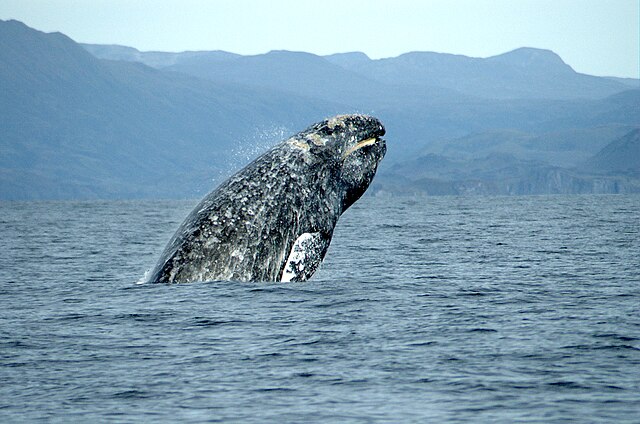A gray whale was spotted on March 1 in the Atlantic Ocean, about 30 miles south of Nantucket. While gray whales are commonly seen throughout the northern Pacific Ocean, the species has been extinct from Atlantic waters for over 200 years. In the past 15 years, there have only been five observations of gray whales in Atlantic and Mediterranean waters.
Scientists believe that climate change is partly responsible for gray whale sightings in the Atlantic Ocean. The Northwest Passage, which connects the Atlantic and Pacific oceans through the Arctic Ocean, has been ice-free in recent summers allowing gray whales to pass through more freely than in previous years.
“Other recent unusual gray whale sightings include one off the coast of Namibia in 2015. Four years before that, another was spotted off the coast of Israel,” BBC News journalist Nadine Yousif said.
Gray whales have been extinct from the Atlantic Ocean since the 18th century. While experts are not sure of the exact cause, they believe that whaling played a big factor in their extinction.
“Gray whales were almost hunted to extinction during the era of commercial whaling,” ABC 7 News journalist Patrick Whittle said. “Today, the whales have recovered to the point that they are considered a species of ‘least concern’ by the International Union for Conservation of Nature, though the organization considers the western population of the whales that lives off Asia to be endangered.”
According to the National Oceanic and Atmospheric Administration (NOAA), gray whales make one of the longest annual migrations of any mammal, traveling about 10,000 miles round-trip and in some cases upwards of 14,000 miles.
Gray whales can grow up to 49 feet in length and weigh around 60,000 pounds. Instead of a dorsal fin, gray whales have a dorsal hump about two-thirds from the front of their body and knuckles between their dorsal hump and tail flukes.
“It’s good in that whales can travel from the Pacific to the Atlantic more freely, [Leigh Torres] said, but bad ‘if the gray whales are venturing to the Atlantic in search of food’ because of a big decline of prey in the Pacific,” Washington Post journalist Andrew Jeong said.








